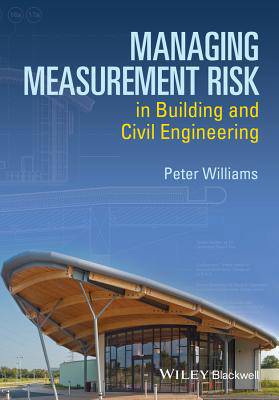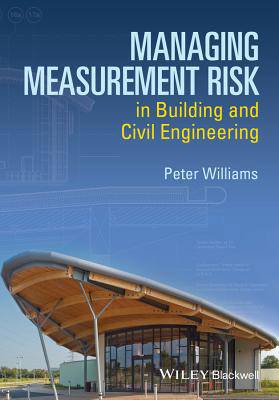
- Afhalen na 1 uur in een winkel met voorraad
- Gratis thuislevering in België vanaf € 30
- Ruim aanbod met 7 miljoen producten
- Afhalen na 1 uur in een winkel met voorraad
- Gratis thuislevering in België vanaf € 30
- Ruim aanbod met 7 miljoen producten
Omschrijving
Measurement in civil engineering and building is a core skill and the means by which an architectural or engineering design may be modelled financially, providing the framework to control and realise designs within defined cost parameters, to the satisfaction of the client. Measurement has a particular skill base, but it is elevated to an 'art' because the quantity surveyor is frequently called upon to interpret incomplete designs in order to determine the intentions of the designer so that contractors may be fully informed when compiling their tenders.
Managing Measurement Risk in Building and Civil Engineering will help all those who use measurement in their work or deal with the output from the measurement process, to understand not only the 'ins and outs' of measuring construction work but also the relationship that measurement has with contracts, procurement, claims and post-contract control in construction. The book is for quantity surveyors, engineers and building surveyors but also for site engineers required to record and measure events on site with a view to establishing entitlement to variations, extras and contractual claims.
The book focuses on the various practical uses of measurement in a day-to-day construction context and provides guidance on how to apply quantity surveying conventions in the many different circumstances encountered in practice. A strong emphasis is placed on measurement in a risk management context as opposed to simply 'taking-off' quantities. It also explains how to use the various standard methods of measurement in a practical working environment and links methods of measurement with conditions of contract, encompassing the contractual issues connected with a variety of procurement methodologies. At the same time, the many uses and applications of measurement are recognised in both a main contractor and subcontractor context.
Measurement has moved into a new and exciting era of on-screen quantification and BIM models but this has changed nothing in terms of the basic principles underlying measurement: thoroughness, attention to detail, good organisation, making work auditable and, above all, understanding the way building and engineering projects are designed and built.
This book will help to give you the confidence to both 'measure' and understand measurement risk issues by:
- presenting the subject of measurement in a modern context with a risk management emphasis
- recognising the interrelationship of measurement with contractual issues including identification of pre- and post-contract measurement risk issues
- emphasising the role of measurement in the entirety of the contracting process particularly considering measurement risk implications of both formal and informal tender documentation and common methods of procurement
- conveying the basic principles of measurement and putting them in an IT context
- incorporating detailed coverage of NRM1 and NRM2, CESMM4, Manual of Contract Documents for Highway Works and POM(I), including a comparison of NRM2 with SMM7 and a detailed analysis of changes from CESMM3 to CESMM4
- discussing the measurement implications of major main and sub-contract conditions (JCT, NEC3, Infrastructure Conditions and FIDIC)
- providing detailed worked examples and explanations of computer-based measurement using a variety of industry-standard software packages
Specificaties
Betrokkenen
- Auteur(s):
- Uitgeverij:
Inhoud
- Aantal bladzijden:
- 624
- Taal:
- Engels
Eigenschappen
- Productcode (EAN):
- 9781118561522
- Verschijningsdatum:
- 16/11/2015
- Uitvoering:
- Paperback
- Formaat:
- Trade paperback (VS)
- Afmetingen:
- 168 mm x 241 mm
- Gewicht:
- 1156 g

Alleen bij Standaard Boekhandel
Beoordelingen
We publiceren alleen reviews die voldoen aan de voorwaarden voor reviews. Bekijk onze voorwaarden voor reviews.











